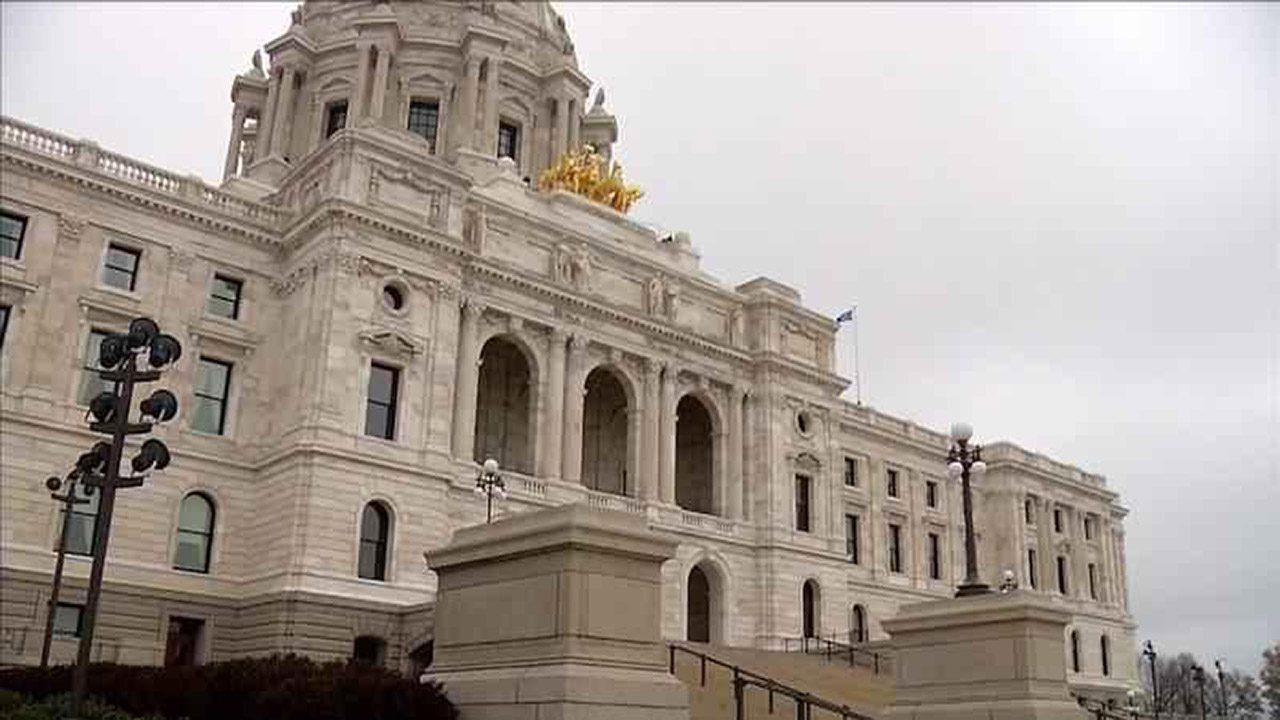Minnesota taxpayers can expect rebates under $3B bill nearing passage

(WDIO, File)
ST. PAUL, Minn. — Minnesota taxpayers can expect rebate checks in the next few months and struggling families with children are likely to get additional relief under a $3 billion tax cut bill nearing approval in the Legislature.
According to the legislation, there would be one-time payments of $260 dollars for single tax filers, $520 for married couples. Families with children are eligible to receive an extra $260 per child, but only up to three children. These payments apply to individuals who make an annual income of $75,000 or less, or married couples who make less than $150,000 per year.
The checks are less than the initial payments proposed by Walz, which were up to $1,000 for single tax filers and $2,000 for couples.
While MN slept…the House-Senate tax conference committee approved final details of a $3B tax cut deal last Wednesday that calls for much smaller rebates than Gov. Walz proposed and does not eliminate the income tax on Social Security benefits, although it does reduce them. 1/3 pic.twitter.com/4kQ4C1pBtn
— Tom Hauser (@thauserkstp) May 18, 2023
Earlier this week, Walz acknowledged that the rebate checks – which are part of a $3 million plan – would be less than what he had originally proposed. Walz’s original proposal called for $1,000 checks for single filers who made less than $75,000 per year, $2,000 for families who made under $150,000 and an extra $200 for each dependent with a max of three.
Families with children could get even more via other per-child and child care tax credits that are aimed at lower- and middle-income families. Couples who earn up to $35,000 would get $1,750 per dependent, but that would decrease as incomes rise and phase out at $90,000.
Democratic Senate Tax Committee Chair Ann Rest, of New Hope, said after House and Senate negotiators unveiled the framework of the bill Wednesday that she was “extremely proud” of the measure, adding that it will provide significant tax relief for families and children.
Her House counterpart, Democratic Rep. Aisha Gomez of Minneapolis, said the bill will “significantly cut child poverty.”
“There are just really incredible transformational things in this bill that will benefit people across our state,” Gomez said.
The bill also includes about $1 billion in tax increases for the next two-year budget, which takes effect July 1. They include a tax aimed at companies with international earnings, plus changes aimed at some higher income earners. And it will authorize some communities to raise local sales taxes.
Republicans, who are in the minority in both chambers, were quick to object to those hikes given that the state had a $17.5 billion budget surplus earlier in the session. And they pointed out that other major budget bills still being negotiated, including the transportation and housing bills that contain their own tax and fee increases. A gas tax increase for roads and bridges has been under discussion.
Senate Republicans holding a news conference reacting to the DFL tax bill agreed to last night. They’re criticizing the tax increases in that bill and increases in other bills.
— Tom Hauser (@thauserkstp) May 18, 2023
“The people who created the surplus will get very little out of it,” says Sen. Bill Weber of Luverne. pic.twitter.com/DpwzB2wxD6
“Minnesotans should feel outraged about what’s happening at the State Capitol right now. It’s runaway tax season down here,” Senate Minority Leader Mark Johnson, of East Grand Forks, said at a news conference Thursday.
Republicans have been fuming over being shut out of most of the budget negotiations while Democrats work out the details of the big bills, often behind closed doors.
The tax bill conference committee was expected to give its final approval to its package Thursday and send it to the House and Senate floors for final approval. With a Monday adjournment deadline, the tax bill is one of the most important remaining pieces of a budget that’s expected to come in at around $65 million, which would be a big jump from the current $55 billion budget that runs through June.
Although Democratic Gov. Tim Walz had proposed rebates of $1,000 for individuals and $2,000 for couples, he told reporters Wednesday that he was fine with the compromise and plans to sign the bill.
Around 80% of Minnesotans who get Social Security will be exempt from taxes on that income, up from around 50% currently. Couples making under $100,000 would be fully exempt, with a partial exemption for incomes up to $140,000. There’s also a break for people receiving public pension benefits.
Homeowners and renters would also get one-time boosts of around 20% in their property tax refunds.
The plan also includes $300 million for public safety assistance for communities and $160 million more in state aid for cities and counties.
The tax bill does not contain a House-backed fifth income tax bracket on incomes over $1 million, a hike that was dropped during the negotiations.